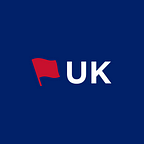Banking On The Future — Where you Keep your Money is as Important as Where you Spend it.
Written By Adam Poole
So you always hear about these large-scale fossil fuel projects on the news, right? The likes of drilling in the Arctic, another new location for fracking somewhere in the English countryside, a coal mine discovered in a remote corner of the Amazon Rainforest, the list goes on. What culprits spring to mind? BP, Shell and ExxonMobil would be a safe bet. The likely lads of polluting companies.
When you stop and have a look into it more though, you come to realise it’s not just these guys. Yes, they are major contributors, but they are simply a cog in an extremely well-oiled machine. There are a lot more companies in the background pulling the strings. A bit like what the Council of Owls is to the Batman saga, these organisations are in the shadows, but hold enormous power.
Some you will probably know, seeing as their adverts pop up on television every day: HSBC and Barclays. In a report by German NGO Urgewald (2020), they identified 20 major case study projects, ranging from accessing enormous gas reserves in Mozambique, through to drilling up Suriname and building coal pipelines across China. These projects combined required a whopping $1.6tn USD to fund, of which $949bn USD is from the top 20 global banks. These two banks paid a combined $121.6bn USDtowards these projects.
It’s not just British organisations though: Bank of America, Deutsche Bank, Credit Suisse and Bank of China are also all on the list, just to name a few. This shows the global scale of this operation. And it’s not just environmental damage these projects cause… Throw displacement of people, human rights violations (particularly those concerning indigenous groups) and health effects such as air pollution in the mix, and that shows the multidimensional nature of this.
So how can we hold banks to account? Well, in all honesty, it’s not an easy task. These are transnational corporations with influence in many places. The big cheeses are raking in millions, why would they stop now? However, you have to start somewhere, and the most direct difference you can make in your own life is being a bit picky about where you save your money.
It can be difficult to know which banks are better than others on the environmental front, and to be honest, why would you? It’s not exactly something that is broadcast widely. But this is why it’s important to talk about this. An article by Green Eco-Friend (2021) identifies some of these as part of an ‘ethical banks’ rating system. Good examples include the Cooperative Bank, Nationwide, Cumberland and Triodos. Another good follow-up action is let them know why you ‘broke up with them!’ After all, if you just disappear without a trace, they are just going to keep doing the same old thing. The more ex-customers that give feedback, the more they know they need to get their act together.
Hopefully this blog gave you something to think about. It’s not easy to know how to tackle an issue of this nature, given it’s scale. But if enough people do their research and make informed environmental decisions on which banks to invest in, perhaps something can change.
Sources:
Five Years Lost How Finance is Blowing the Paris Carbon Budget
